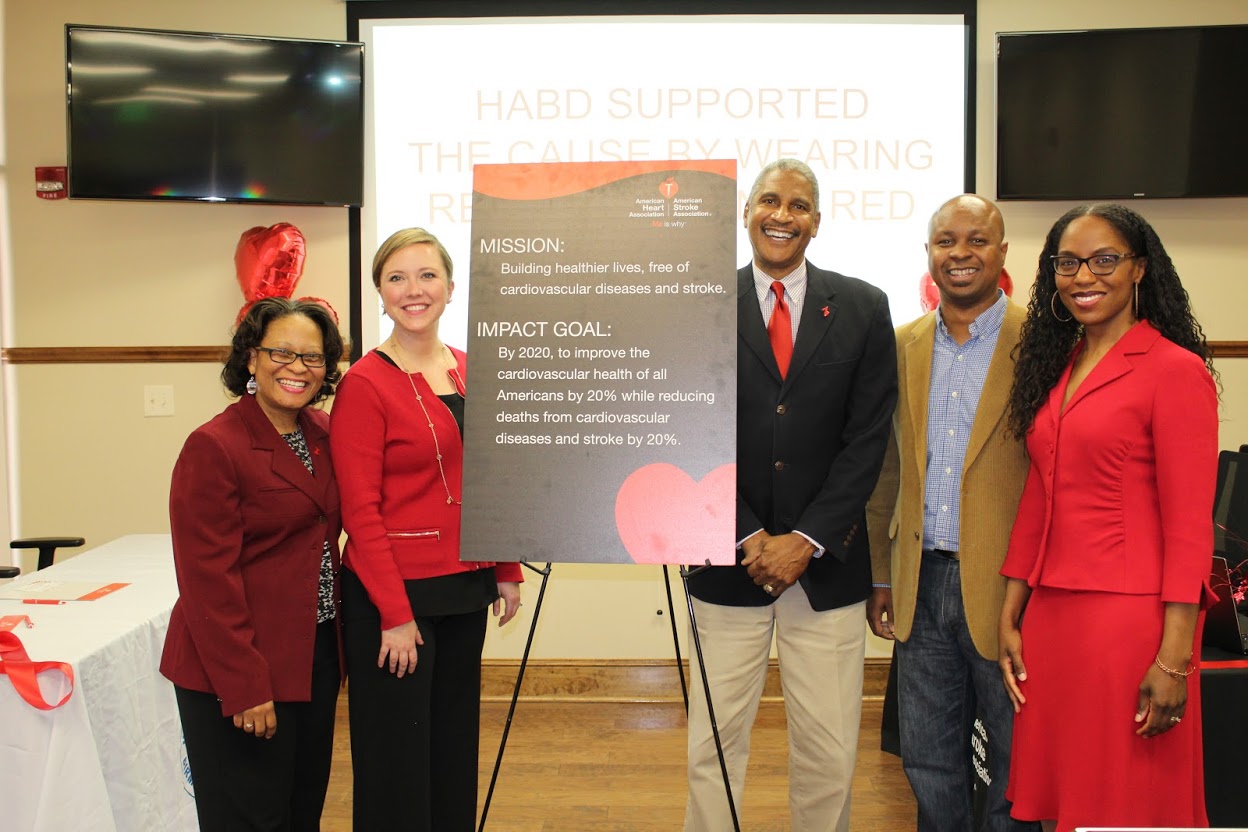
Joseph D. Bryant
Housing Authority of the Birmingham District

It is not uncommon throughout the day to see employees of the Housing Authority of the Birmingham District glancing down at bands on their wrist.
No, they aren’t anxiously checking the time. Instead the employees are using the blue digital readers to monitor their progress in a daily walking regimen and challenge.
The counters and the attention to footsteps are part of HABD’s collaboration with the American Heart Association and the American Stroke Association to promote stroke prevention.
The housing authority was recently celebrated as a “Power to End Stroke Champion” during a recognition and recruitment reception at the Alabama Theatre.
“The purpose of this event is to raise awareness of stroke within the African-American community and to recruit, inspire and empower community leaders to become Power to End Stroke Ambassadors,” said Nadia Richardson AHA/ASA multicultural initiatives director.
HABD earlier this year signed a memorandum of understanding to promote better health for employees as well as residents.
“Your energy and creativity are evident in the ways you champion the AHA/ASA mission of “Building healthier lives free of cardiovascular disease and stroke,” Richardson said. “We are excited to watch our relationship with you grow as we seek to impact the 14 communities you serve throughout Birmingham.”
Among the activities, the housing authority organized a 14-week employee walking and running employee competition.
HABD President/CEO Michael Lundy accepted the award on behalf of the agency. He said the agency first wanted to set an example of healthy steps as it unveiled similar initiatives for residents.
He called the partnership with the Heart Association a natural fit with the mission to improve the quality of life for residents of Alabama’s largest affordable housing agency.
“It only takes small changes to deliver significant health benefits,” Lundy said. “Walking a little bit each day, along with paying attention to what and how much we eat, can both extend our lives and improve the quality of our lives. It is our desire to take those first steps and show our residents that if we can do it, they can too.”
Alabama has the highest rate of strokes in the nation. Stroke is the fourth leading cause of death in Alabama, killing nearly 2,600 residents each year. Stroke is also a leading cause of long-term disability in the United States.



